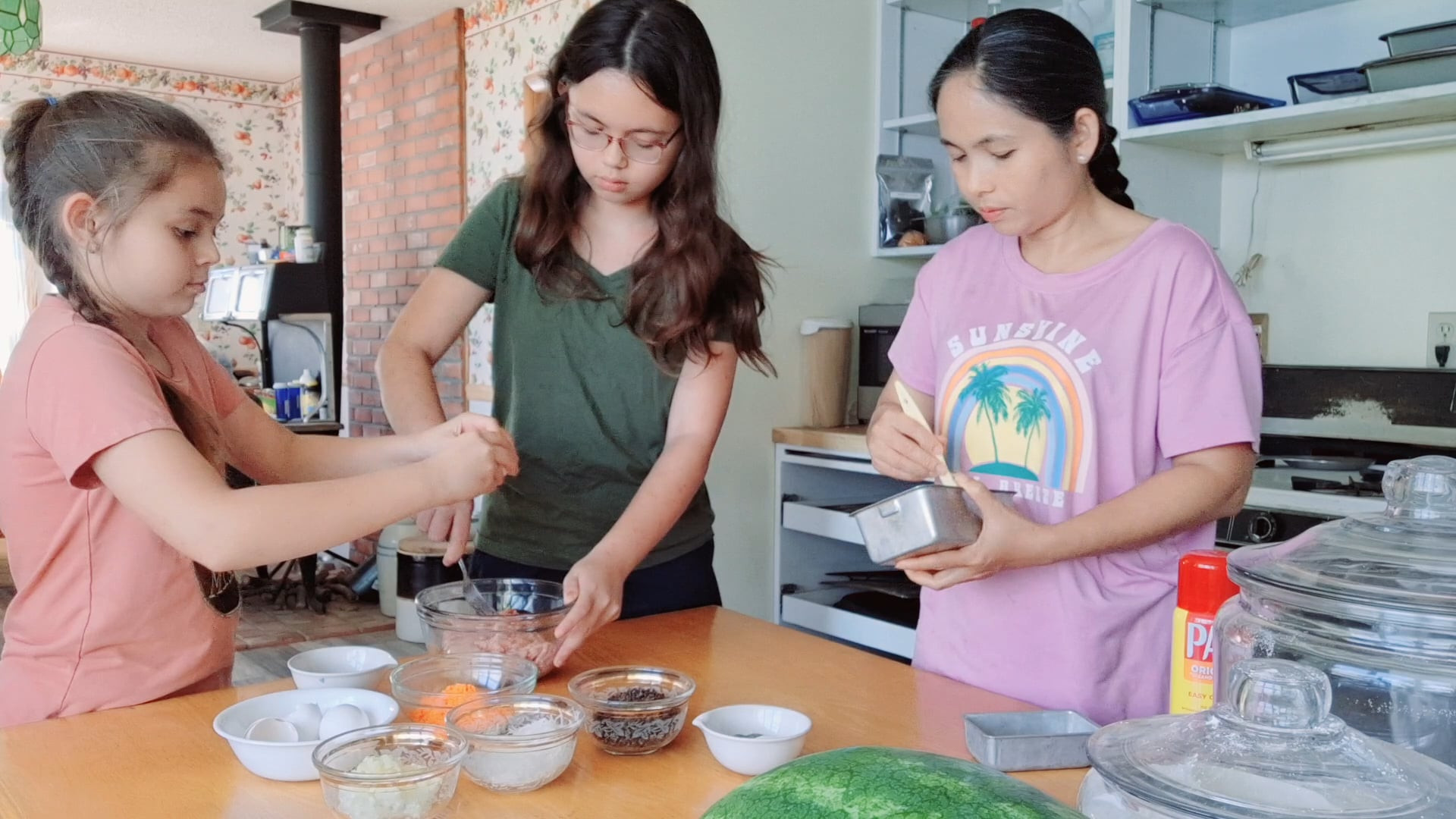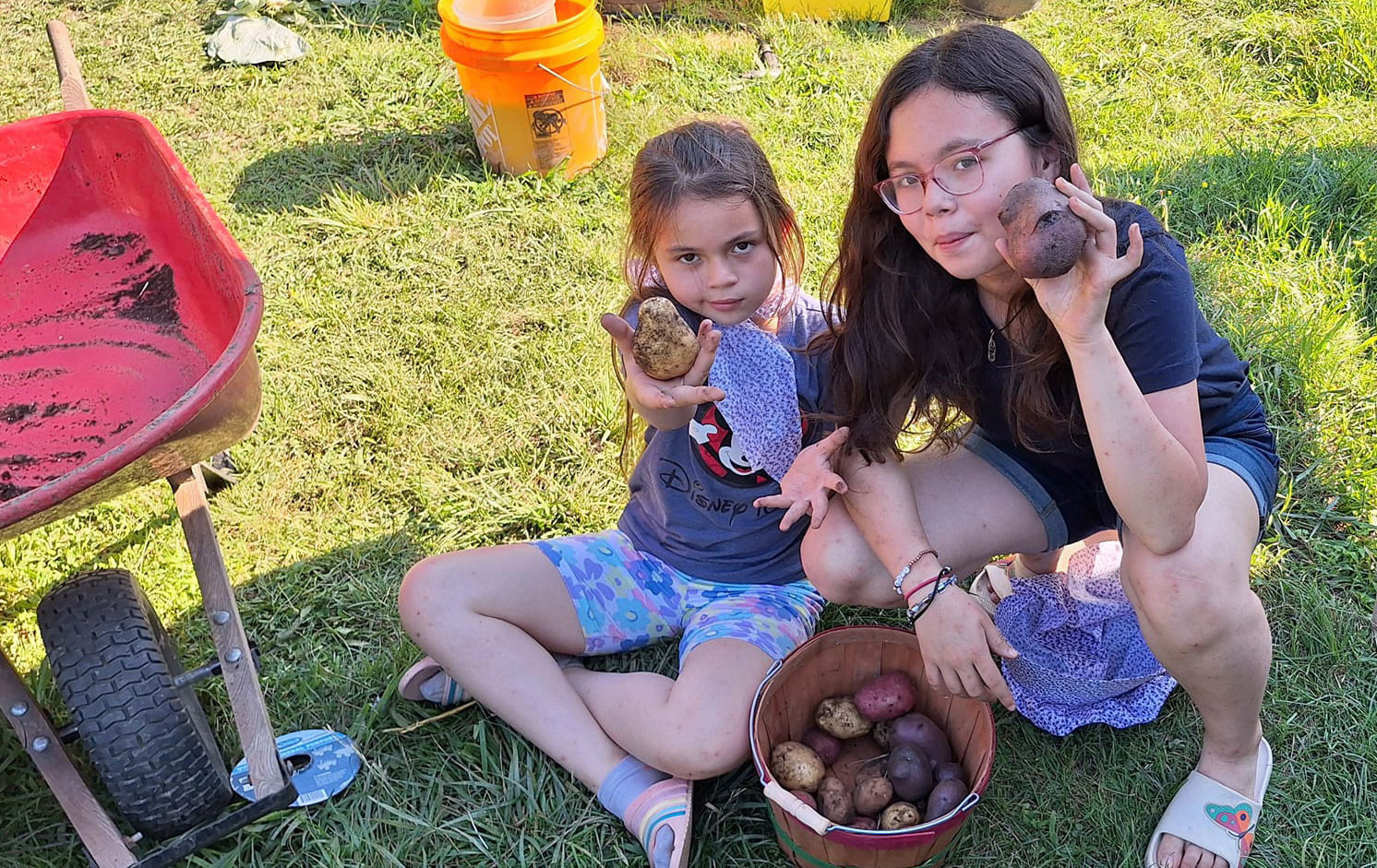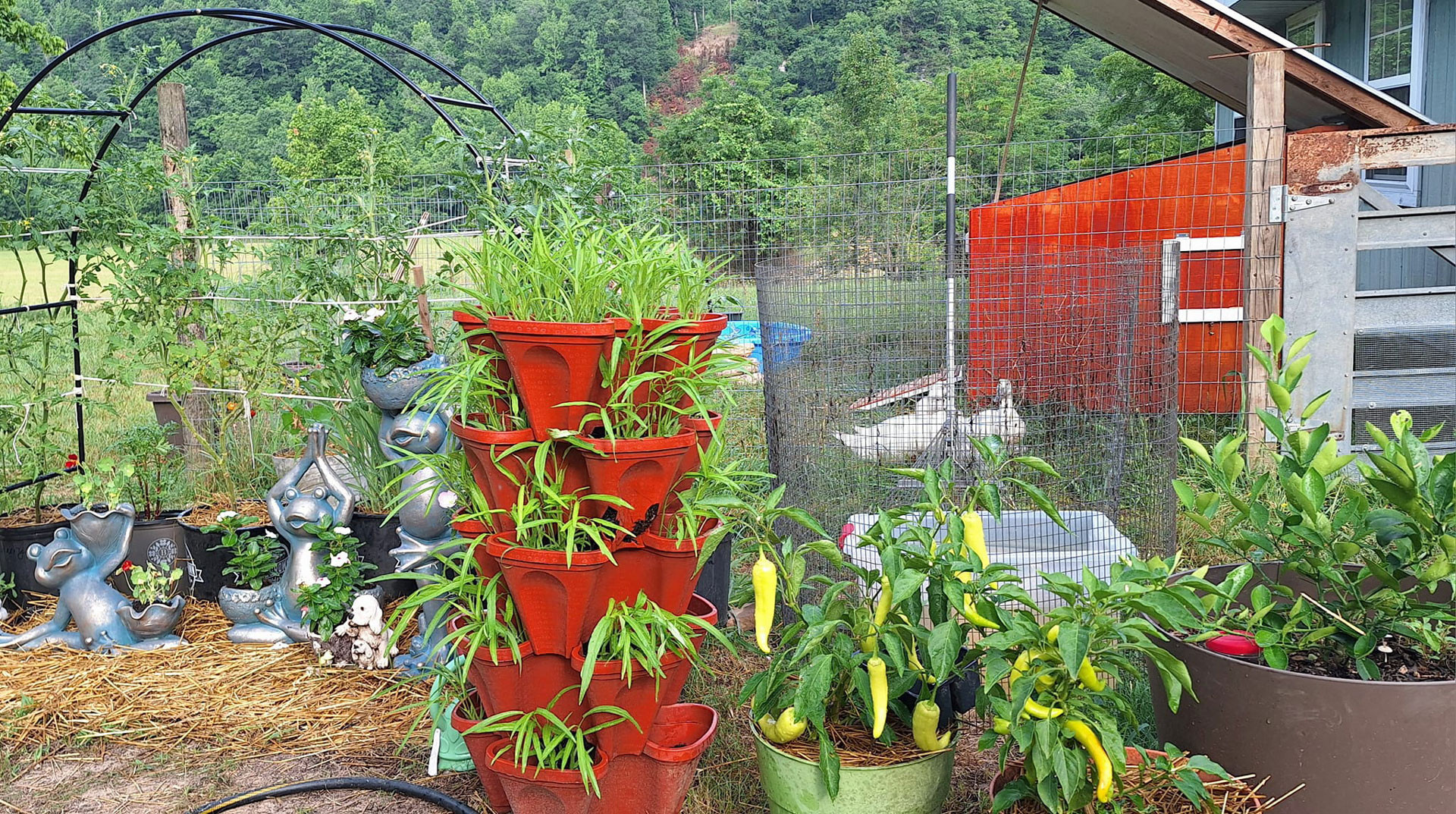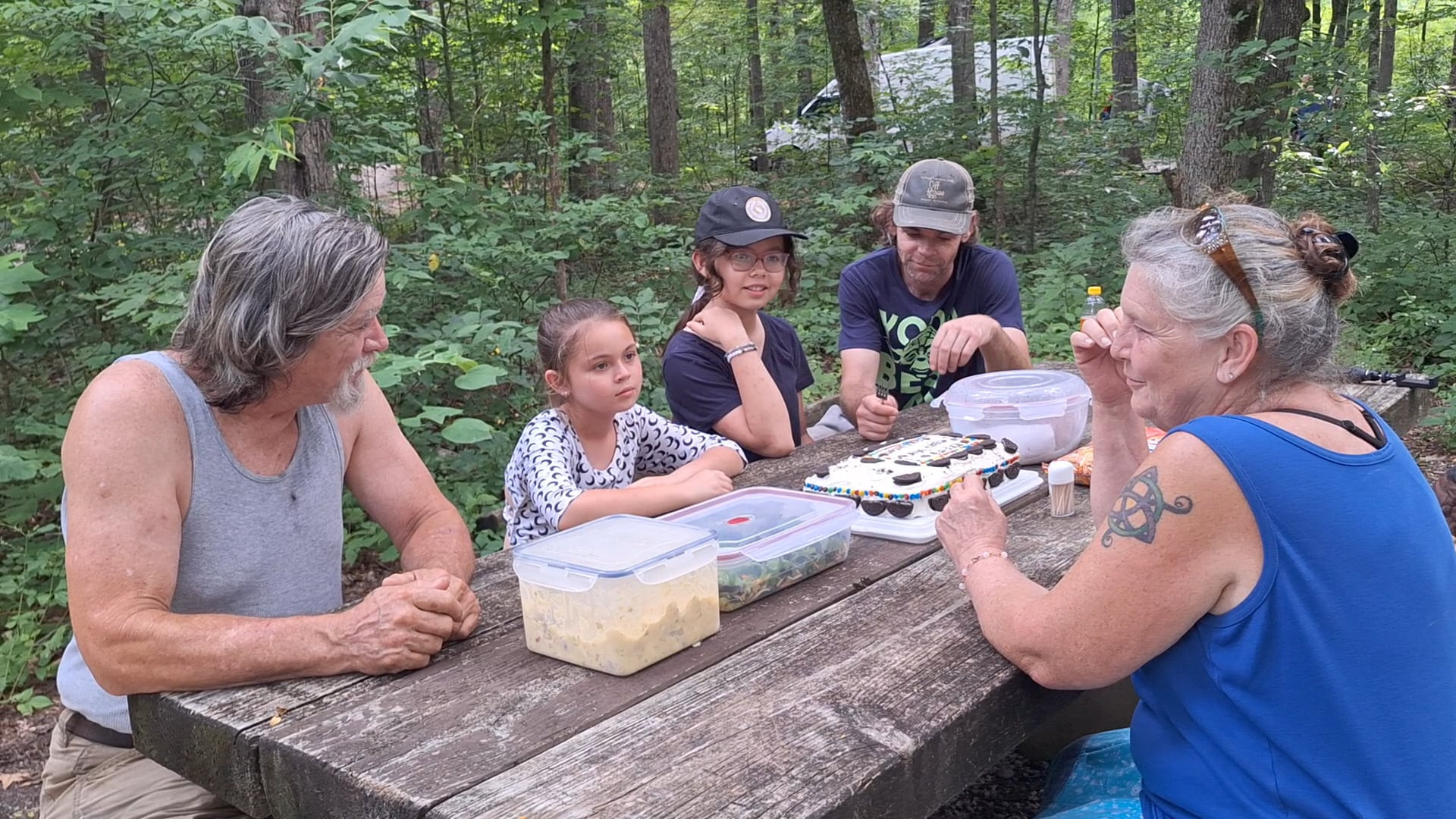The Vietnamese wife chose to live with her husband's parents in rural America, but still teaches Vietnamese to her children every day so that they always remember their roots and homeland.

“Dice dice
New year new batch
Which house is still awake?
Open the door for us…”
In a small house in the countryside of Arkansas, USA, two little girls are baking cakes while humming Vietnamese rhymes. The image of two Vietnamese-American girls singing and reciting Vietnamese poems and rhymes makes many people excited and admire.
The person behind those videos, who is also persistently teaching her two daughters to learn Vietnamese in the US, is Ms. Nguyen Hoai Nhan (from Ba Ria - Vung Tau).
Married to Jason Sciss for 13 years, Nguyen Hoai Nhan has only been living in the US for a year and a half. In her in-laws’ house, 6 people from 3 generations live together – a style completely different from what many people think of as a typical American family structure.
Before that, Jason taught English in Ba Ria, and she made and sold cakes online in her hometown. Before they got into a serious relationship, she had agreed with him that she had no intention of going to America, and he agreed.
“But after having children, I thought about them. I wanted them to have the opportunity to access a more modern education. At the same time, the children’s grandparents also wanted to live with their children and grandchildren. So, the whole family moved to America,” she said.
When she first came to the US, her family lived in another city in Arkansas. During a visit to her children’s grandparents, she was fascinated by the scenery and nature there. She learned about the schools here and found that the facilities were not inferior to those in the city. “That’s why the whole family came here to be farmers.”
From baker to farmer

When she first moved here, she loved the feeling of stepping out into the garden every morning - being able to listen to the birds singing, breathe the fresh air, and watch the changes in nature with each season, especially in autumn.
Every time she stepped out into the yard, she saw a giant autumn picture right before her eyes, beautiful beyond description. But after that, it was really a difficult time to adapt.
When she was in Vietnam, she had no experience in farming, and even “whatever plant she planted, it died”. “Therefore, farming was a job beyond my ability” – she humorously shared.
The couple set out to clean up and reclaim the land because no one had taken care of the family land for decades, and the grass and weeds were overgrown. It was the first time she had ever used a lawn mower or a chainsaw. “I was afraid of snakes and insects… so many difficulties made me want to give up and move to a more populated area.
I can study to do other jobs like many Vietnamese people who come here. But the more I see my family's efforts to build a new life, the more motivated I am and try little by little every day."

All the efforts of the couple and their two daughters, Violet, 8 years old and Lily, 11 years old, have gradually brought positive results. After 1 year of moving to the countryside, the family's life is now much better. The two daughters are increasingly active, better at housework and gardening.
Ms. Nhan shared that her husband's main job is still a chef. She is the main "personnel" in building an organic vegetable garden for the family. "Luckily, coming here has changed my fortune. The garden has a good harvest, and I have surplus vegetables to give away to friends and neighbors."
She also grows many Vietnamese herbs such as fish mint, Vietnamese coriander, basil, coriander, lemongrass, and piper lolot. These vegetables are not sold where she lives because there is no Vietnamese community here. “The only regret is that vegetables can only be grown here for about 6-7 months a year. During the cold season, they can no longer be grown.”
Living with parents-in-law

Vietnamese brides believe that living together with multiple generations will inevitably lead to disagreements, even with blood relatives.
“But the problem is that both sides know how to sympathize, lower their egos a bit, the young respect the old, the old please the young, then living with the in-laws is not too difficult. No matter Western or Eastern culture, the core of a happy family is still love and respect for each other.”
She shared that she was very grateful to her husband's parents. In addition to loving their children and grandchildren, they also respected Vietnamese language, culture and cuisine.
“In the past, due to some paperwork problems, I couldn’t go to America with Jason and his father. It took me about a year and a half to get there. During the time I wasn’t around, Jason was busy with work, and my parents-in-law were the ones who always reminded and urged Lily to review her Vietnamese for fear that she would forget.
My grandparents also explained to me why I had to learn Vietnamese even though I had moved to America. When I came to reunite with them, they always responded and enjoyed their daughter-in-law's hometown dishes, and even holidays like Lunar New Year and Mid-Autumn Festival..."
She said her husband's parents in America are not much different from her Vietnamese parents-in-law.
“All grandparents love to take care of their children and grandchildren. But the difference is that grandparents in Vietnam tend to love their children and grandchildren in a protective way, afraid that the children will get tired or not do what they want, so they just keep working hard. Meanwhile, grandparents in the US just let their children and grandchildren manage, no matter the result. If they need help, they are ready.”
Preserve Vietnamese for children
Since moving to the US, her children's living environment has no Vietnamese people, so they only have the opportunity to speak Vietnamese with their mother in daily activities. But that does not mean she lets her children forget Vietnamese.
She always tries to communicate and interact with her children in Vietnamese as much as possible. She also often reminds and explains to them about their motherland, where they were born, so that they do not forget their roots and understand the importance of Vietnamese to them.
“The reason I value preserving Vietnamese for my children is because they still have a whole family in Vietnam who loves them and looks forward to the day they return to visit their homeland. When they were young, they were loved and cared for a lot by their grandmother, aunts and uncles.
I keep Vietnamese for my children so that one day when they return to Vietnam, they can still interact well with their relatives. They return to Vietnam as children and grandchildren visiting their homeland, not as tourists visiting a foreign country.
Besides, in the era of integration, knowing more languages has more advantages and the future is more open, so why would I lose a language that is both beautiful and my mother tongue?" - she confided.
HQ (according to Vietnamnet)